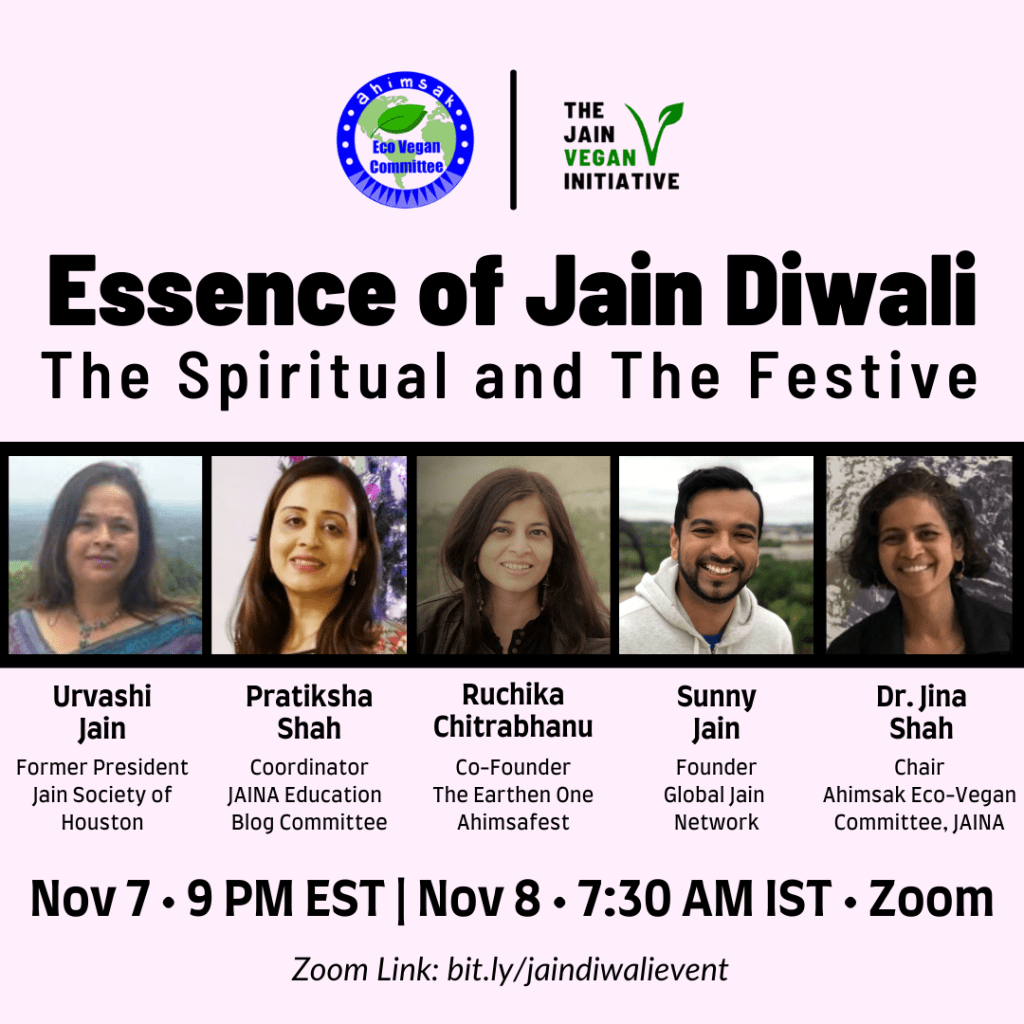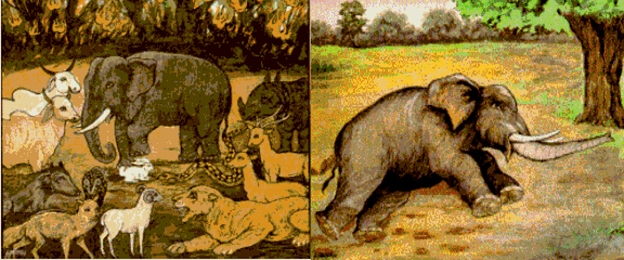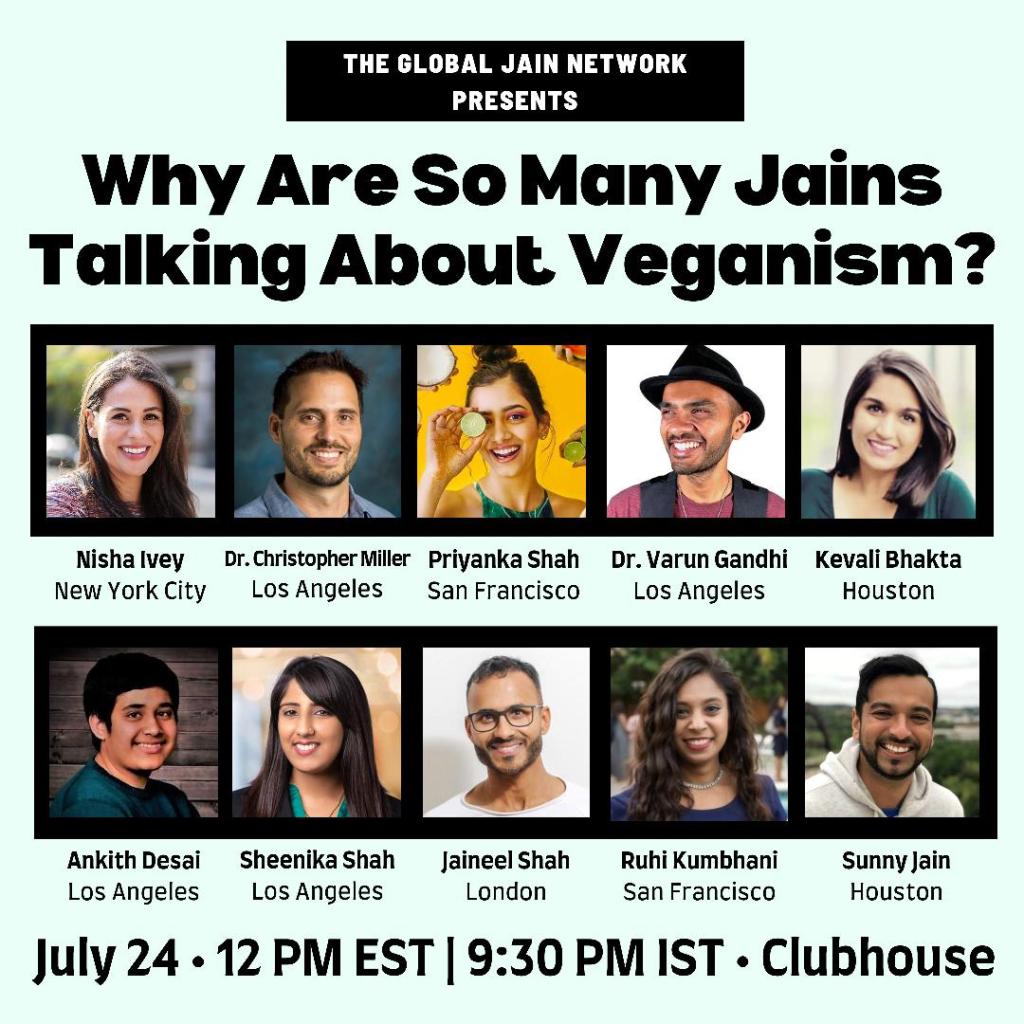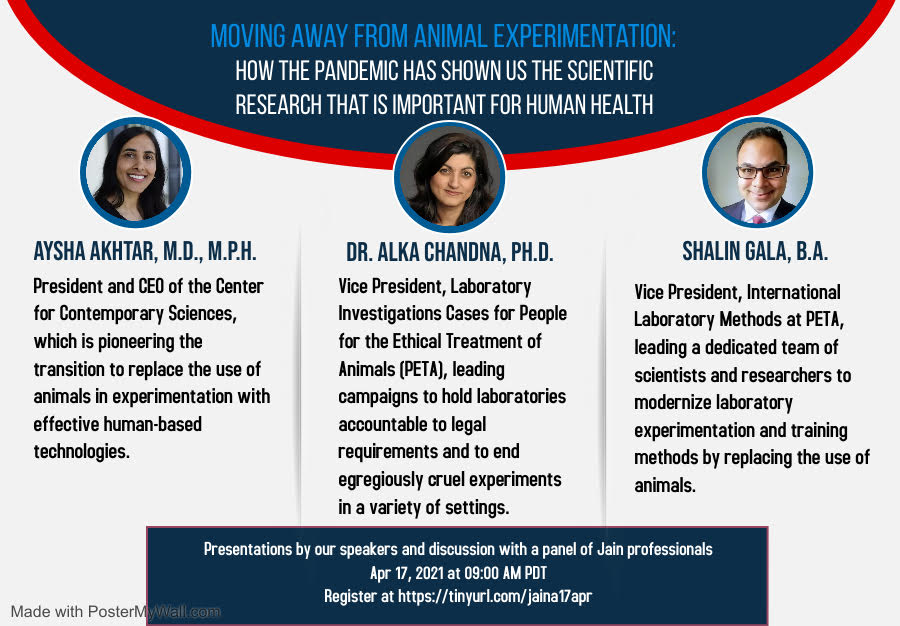Yesterday, the Global Jain Network hosted a special program to pray for Thanksgiving. The full recording is here. Many Jains shared stories and reflections, including the meal contemplation that we’ll discuss in this post.
These meal reflections are adapted from The Five Contemplations in the Plum Village tradition, a Zen Buddhist practice led by the Vietnamese monk Thich Nhat Hanh. They have been continually revised by a thoughtful community and the latest version is described as the New Contemplations before eating. We have added #5 and #6 in keeping with our Jain sentiments. Through the years, the “Jain version” has changed a little (event a little different in the recording compared to what’s written below). The Thanksgiving version calls out turkeys in #6 as objects of large scale slaughter for Thanksgiving. The everyday version includes the animals that are tortured and killed everyday in the form of meat, eggs and dairy products.

Even as we express our sorrow at how the animals and our earth are harmed, we can find joy in a community that shares our purpose to transform our relationship with all beings. Perhaps this joy motivates us to take even more care in our diet and lifestyle to follow our highest ideals of non-violence. Happy Thanksliving! Happy Thanksvegan!
Meal Reflections:
1. This food is the gift of the whole universe: the earth, the sky, numerous living beings and much hard, loving work.
2. May we eat with mindfulness and gratitude to be worthy to receive it.
3. May we recognize and transform our unwholesome mental formations, especially our greed, and learn to eat with moderation.
4. May we keep our compassion alive by eating in such a way that we reduce the suffering of living beings, stops contributing to climate change, and heals and preserves our precious planet.
5. May we ask for forgiveness from all living beings that we may have harmed, intentionally or unintentionally. May peace and compassion grow in ourselves and extend to all around us.
6. May we pray that all the people everywhere in the world will avoid inflicting harm on animals and fellow human beings and practice nonviolence and compassion.
7. We accept this food so that we may nurture our sisterhood and brotherhood, strengthen our community, and nourish our ideal of serving all living beings.






